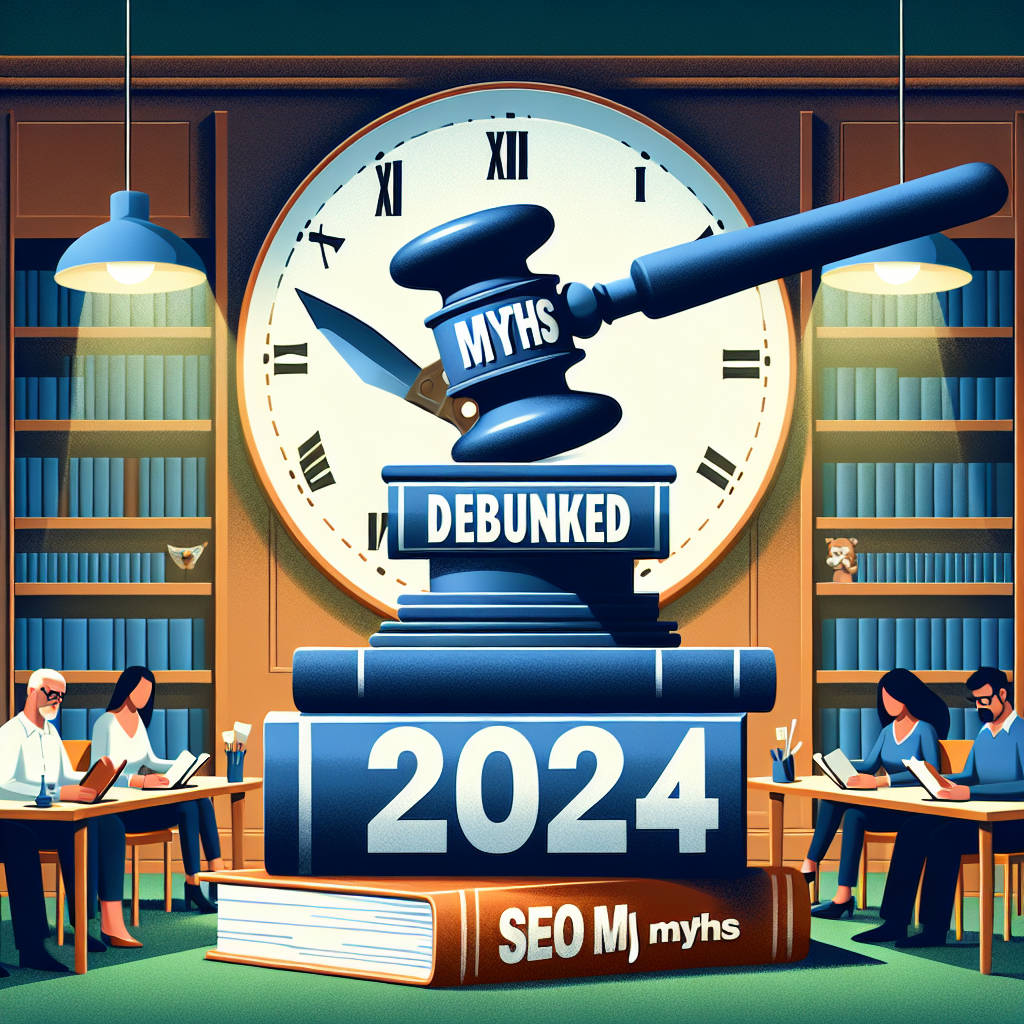-
Table of Contents
- SEO Myths Debunked: What to Know in 2024
- Understanding SEO in 2024
- Myth 1: Keywords Are No Longer Relevant
- Myth 2: More Links Are Better Than Quality Links
- Myth 3: Social Media Doesn’t Impact SEO
- Myth 4: SEO Is a One-Time Effort
- Myth 5: User Experience Is Just a Buzzword
- Conclusion: Key Takeaways for SEO in 2024
SEO Myths Debunked: What to Know in 2024

In the ever-evolving landscape of search engine optimization (SEO), staying informed about the latest truths and debunking persistent myths is crucial for anyone looking to enhance their online presence. As we step into 2024, it’s important to clear the air on some of the most common misconceptions that can hinder the effectiveness of your SEO strategies. This article aims to provide a comprehensive overview of these myths, backed by recent data and expert insights, to ensure you are well-equipped to optimize your website in the most effective way.
Understanding SEO in 2024
Before diving into the myths, let’s set the stage for what SEO looks like in 2024. The core principles of SEO remain centered around providing a great user experience and offering content that is both relevant and authoritative. However, the tools, technologies, and specific tactics have evolved. Search engines like Google continue to refine their algorithms to better understand user intent, making it essential for SEO professionals to adapt their strategies accordingly.
Myth 1: Keywords Are No Longer Relevant
One of the most persistent myths in SEO is the diminishing importance of keywords. Despite changes in algorithms and the rise of semantic search, keywords still play a crucial role in SEO strategies. In 2024, the focus has shifted from keyword stuffing to the strategic placement of relevant keywords in content, meta tags, and URLs.
- Importance of long-tail keywords: These keywords are more specific and less competitive, making them highly effective for targeting niche demographics.
- Contextual relevance: Search engines are now better at understanding the context in which keywords are used, making it important to integrate them naturally within the content.
Myth 2: More Links Are Better Than Quality Links
While backlinks remain a vital component of SEO, the emphasis has dramatically shifted from quantity to quality. A few high-quality backlinks from reputable sites are far more beneficial than a large number of low-quality links. This shift is largely due to search engines becoming better at identifying link quality and penalizing sites that engage in link spamming.
- Focus on natural link building: Engaging content that naturally attracts backlinks is key.
- Avoid black-hat SEO techniques: Practices such as buying links or participating in link farms can lead to severe penalties.
Myth 3: Social Media Doesn’t Impact SEO
Although social signals do not directly influence search engine rankings, the indirect benefits of social media on SEO are undeniable. Social media can significantly amplify the reach of your content, increase brand awareness, and drive traffic to your website, all of which can indirectly boost your SEO efforts.
- Enhanced content visibility: Social shares increase content visibility and can lead to more organic links.
- Improved brand recognition: A strong social media presence can enhance brand recognition and loyalty, which can indirectly influence search rankings.
Myth 4: SEO Is a One-Time Effort
SEO is not a set-it-and-forget-it component of your digital strategy. It requires ongoing adjustments and updates to remain effective. Search engines frequently update their algorithms, and competitors continually refine their SEO strategies, making it necessary to stay proactive in your SEO efforts.
- Regular content updates: Keeping your content fresh and relevant is key to maintaining and improving your search rankings.
- Continuous keyword research: As market trends shift and new competitors emerge, ongoing keyword research is essential to stay competitive.
Myth 5: User Experience Is Just a Buzzword
User experience (UX) has become a central component of effective SEO strategies. Search engines have increasingly prioritized sites that offer a positive user experience, including fast load times, mobile-friendliness, and intuitive navigation. Improving UX can lead to better engagement metrics, which are important signals for search engines.
- Mobile optimization: With the increasing prevalence of mobile browsing, ensuring your site is mobile-friendly is crucial.
- Site speed: Enhancing site speed can significantly improve user satisfaction and contribute to higher search rankings.
Conclusion: Key Takeaways for SEO in 2024
As we look towards the future of SEO in 2024, it’s clear that while the foundation remains the same, the details are constantly changing. Debunking common SEO myths is essential for anyone looking to effectively enhance their online presence. Remember, successful SEO strategies involve a combination of staying updated with the latest trends, continuously refining your tactics, and always prioritizing the user experience.
By understanding and implementing these insights, you can ensure that your SEO efforts are not only up-to-date but also set up for optimal performance in the ever-changing digital landscape.


